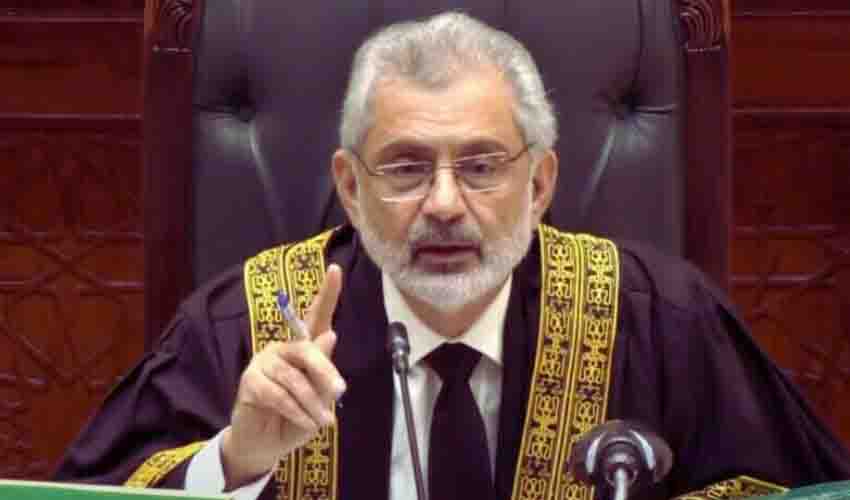In a significant development following the startling letter by six Islamabad High Court judges to the Supreme Judicial Council (SJC), the Supreme Court has constituted a new six-member larger bench to hear the suo motu case. This case revolves around allegations of interference by the country’s intelligence agencies into judicial affairs.
The new bench, headed by Chief Justice of Pakistan (CJP) Qazi Faez Isa, is set to convene on April 30 to address the concerns raised by the IHC judges. Notably, this bench includes Justice Syed Mansoor Ali Shah, Justice Jamal Khan Mandokhail, Justice Athar Minallah, Justice Musarrat Hilali, and Justice Naeem Akhtar Afghan, with Justice Yahya Afridi as the only exception.
Previously, a seven-member larger bench, led by CJP Isa, had taken up the matter on April 3. However, Justice Yahya Afridi later recused himself from hearing the case, leading to the formation of the current bench.
The decision to constitute this larger bench was made under the Supreme Court Practice and Procedure Act 2023, by a committee comprising CJP Isa, Justice Syed Mansoor Ali Shah, and Justice Munib Akhtar. The court roster, issued from Karachi by SC Registrar Jazeela Aslam, indicates this development.
The absence of a full court has been a point of contention, with lawyers supporting the IHC judges urging the committee to reconsider its decision. However, CJP Isa has clarified that he received no complaints of executive interference during his tenure.
The case also intersects with political dynamics, with PTI leaders expressing concerns over perceived manipulation of judicial proceedings, particularly regarding cases involving their party. Similar sentiments were echoed regarding the convictions of Nawaz Sharif, Maryam Nawaz, and Imran Khan before respective general elections.
Chief Justice Isa’s leadership has faced scrutiny, with questions raised about political motivations behind certain convictions. Concerns regarding the protection of the six IHC judges from potential harassment are paramount, especially considering the reported witch-hunt against CJP Isa following his decision in the Faizabad Dharna case.
Speculation regarding potential judicial reforms through a constitutional amendment further adds complexity to the situation, as the outcome of crucial cases may be viewed through the lens of these proposed reforms.
